Building a company where a diversity of people can work together productively
Orbray Future ColumnVol.7
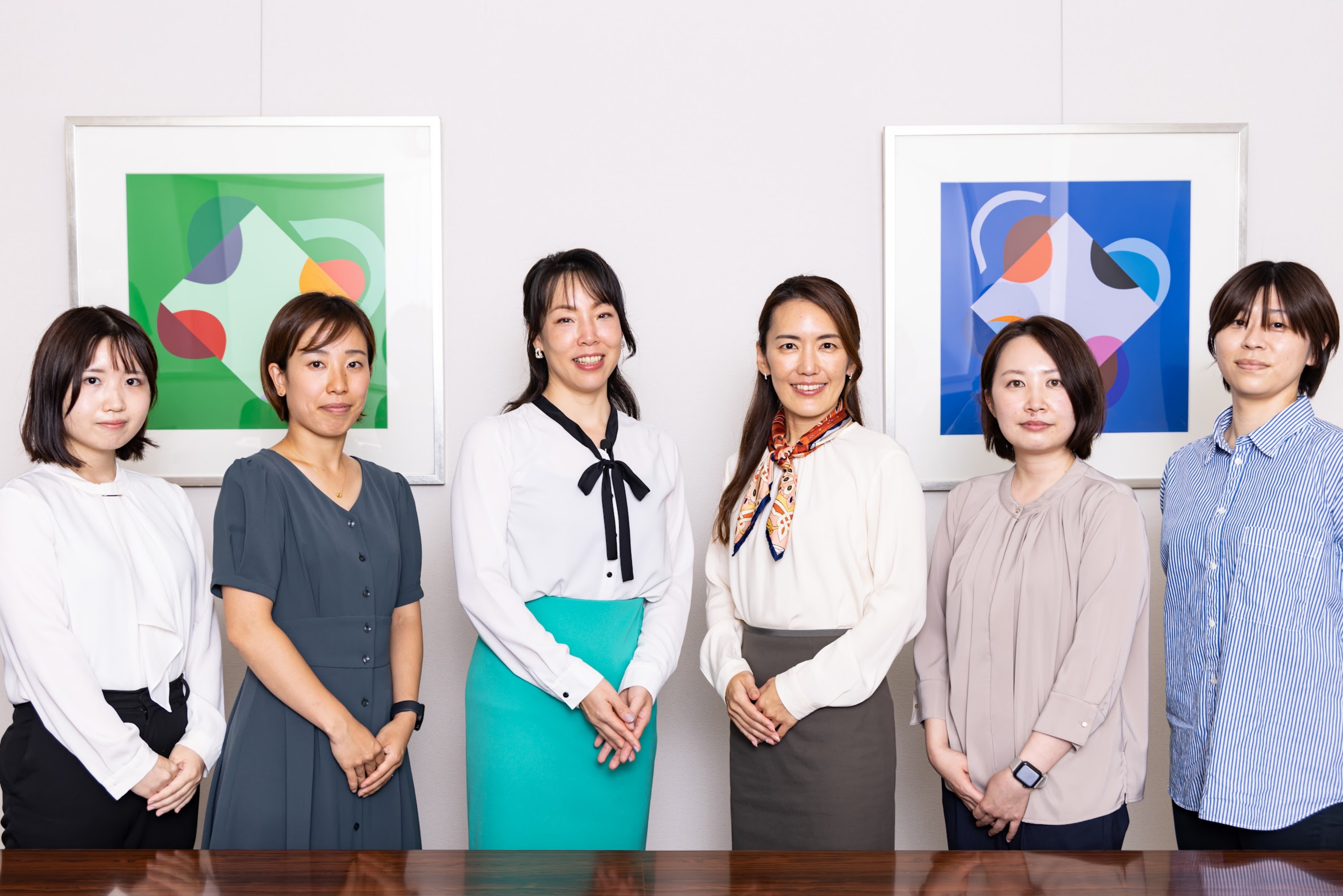
On January 1, 2023, we changed the name of our company,
Adamant Namiki Precision Jewel Co., Ltd., to Orbray Co., Ltd.
For the seventh Orbray column, we invited Ms. Sachiko Habu, an author and media producer, to hold a discussion with President Riyako Namiki and four of Orbray’s female workers at the company’s headquarters in Tokyo. Today, we are seeing a growing movement all over the world seeking the establishment of a society that respects differences in factors ranging from gender, age, nationality, and sexual orientation, to religion, values, and lifestyle. Although the concept of diversity is spreading in Japan, we are still behind other advanced economies in terms of its awareness. We invited Ms. Habu to help us think about how our company is currently responding to diversity issues and how we might improve.
Ms. Habu has worked for Nikkei Business Publications, Inc., a Tokyo-based publishing firm covering a variety of topics, including management, lifestyles, and science and technology. She has also created several web magazines: Doors, targeting working women and couples; Dual, targeting working parents; and Aria, targeting readers in their 40s and 50s. After serving as editor-in-chief of these publications, she started her own company this year. Currently, she is engaged in promoting awareness of working women and consulting to achieve a society where a diversity of people can thrive.
Diversity in Japan today
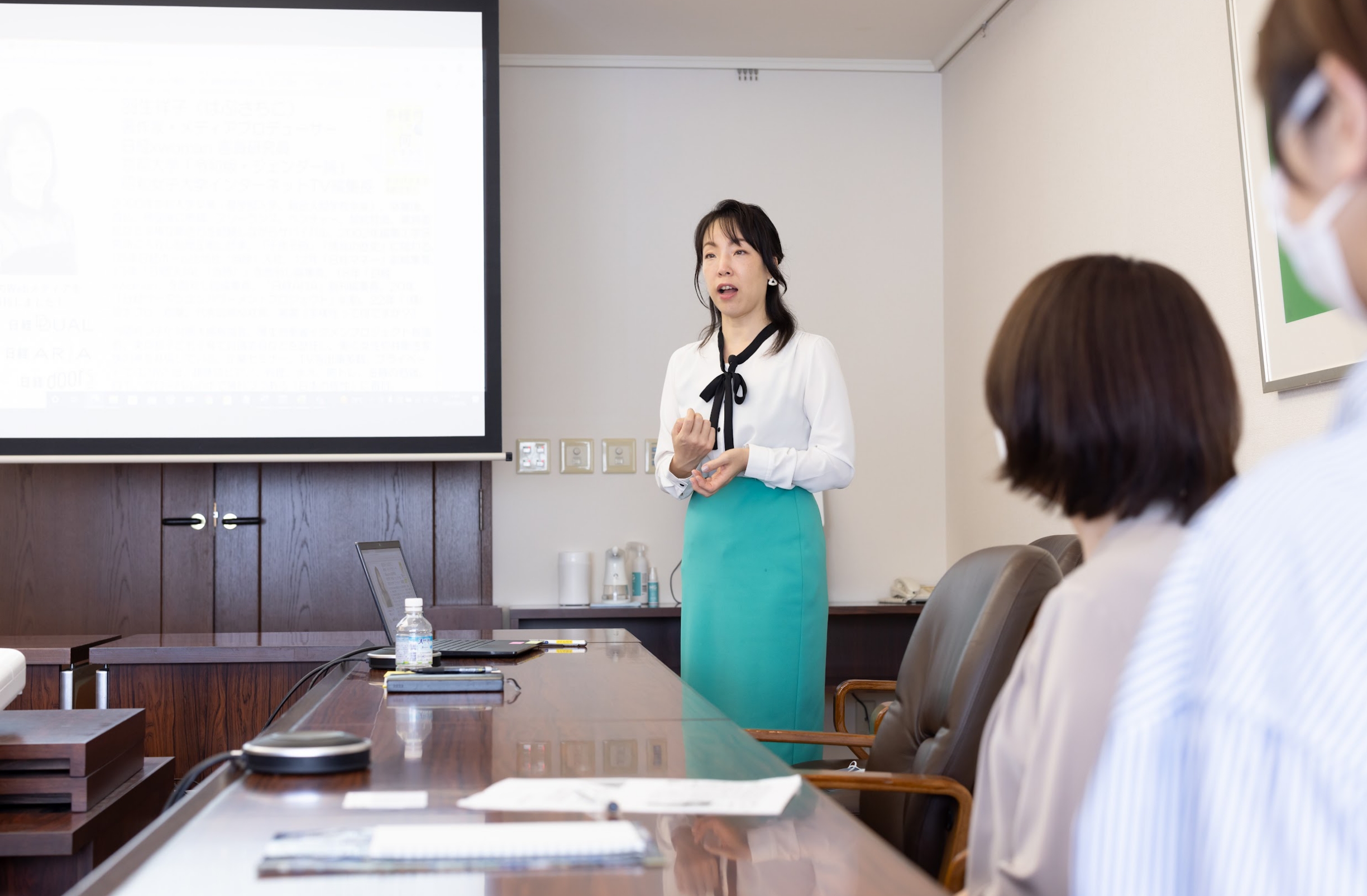
Ms. Habu: The words “diversity” and “inclusion” are a hot topic around the world these days. Today, I would like to discuss why companies need to think about diversity in their management.
Japanese companies’ efforts to advance diversity have failed to set targets beyond supporting working mothers, with little progress over the past 20 years or so. All they are seeking is to allow working mums to go home earlier and help them find nursery schools. Though these are important steps, the diversity being discussed in the world is much more overarching. In addition to gender roles, it also covers age, ethnicity, nationality, religion, and LGBTQ (sexual minorities), none of which is being considered in Japan.
In the U.S. and Europe, university research project teams could fail to receive grants if they have no female team members. This doesn’t mean they should include women just to fill a quota or for irrational reasons. Teams that have female members show better performance, and this is proved by data. Moreover, in the U.S., shareholders are increasingly pressuring boards of directors to boost their diversity.
Despite the high level of education and experience among women in Japan, our country has a low ratio of female corporate executives compared with the Group of 20 nations. Among the G20, Japan and South Korea are both rated low. However, the ratio of female executives in South Korea is set to increase this year because of legal changes. That will likely leave Japan alone at the bottom.
Also, a Japanese woman’s lifetime wages minus her educational investment places Japan at the bottom of the 38 nations in the Organization for Economic Cooperation and Development (OECD). I thought that this data must be wrong and called the OECD. They confirmed that this is indeed correct. In Japan, the average wage for women is depressed because some women try to limit their working hours to avoid earning more than the threshold to receive a spouse tax exemption, which is 1.3 million yen (about US$8,800). But some companies use this desire of some women to stay under the tax exemption threshold – and the resulting depressed average female wage – to keep the pay for all female workers low, even for women who are focusing on their careers and deserve equal pay for equal work. This may explain why Japan has the third-highest gender wage gap in the OECD at 22.1%, versus 12% for the OECD on average, as of 2021.
Why companies need diversity
Ms. Habu: We have seen the psychological phenomenon called “groupthink,” in which people strive for consensus within a group, at any cost. At Japanese companies, the group with the biggest presence is the cohort of male workers in their 50s and 60s, who have had similar experiences, including success at work. These men tend to underestimate those who are different from them. They often dismiss the voices of young women who hope to take more time off or ask for a more worker-friendly environment, saying these women are wimpy complainers. In such a homogeneous group, these male workers don’t realize that their values are becoming unacceptable in today’s society. Meanwhile, female workers tend to blame themselves, feel isolated, and become reluctant to express their opinions. The loss of diverse opinions is a loss for the company.
After I gave birth to my first child, I thought, “my career as a journalist has ended." When I returned to work after having my second child, I experienced such episodes as becoming too tense at a railway station and being unable to descend the stairways. I was also too scared to answer a call at the office. I think that my experience represents a typical situation for Japanese working women.

Participant No. 1: I have one child. My colleagues are so nice and help me juggle work and family. I have worked for the development department since I joined this company. I have been assigned to a big project team since my first year at the firm. I often had a difficult time in my work and sometimes I had to work overtime. Several years after I joined, our team succeeded with the project, and I got married and pregnant. I felt uneasy until I went on maternity leave, but my boss was a very understating person, and he allowed me to work for shorter hours. Now I’m on reduced working hours and continue to work for development, my favorite job. I very much appreciate their consideration.
Ms. Habu: I would like to ask the opinion of a new employee. What do you think?
Participant No. 2: I can’t quite get my thoughts together yet, but I wish to keep working for a long time even after I get married and have children. We have two working mothers at my work place and they work from home. I am always inspired by their dedication to their job. Today I would like to listen carefully to everyone’s ideas and reimagine my life plan.
Pres. Namiki: In order to establish a company culture in which a diversity of people can work together with dedication and respect, those who belong to a majority group must be careful of the risk of being trapped in groupthink.
I am a woman, and although I was born into the third generation of our company’s founding family, I wasn’t groomed to be the successor of the president. I have to acknowledge that I was uneasy when I was appointed to this huge job out of the blue. However, I have managed to fulfill this role thanks to the support of our company’s capable staff members, including the executive vice president. We share the belief that we should take advantage of each other’s strengths to help one another and build a stronger team. Since becoming president, I have had one-on-on meetings with each employee, and just finished the 700th such meeting. At first, our employees were reluctant to talk, and I had a hard time inducing a lively discussion with them. In recent meetings, however, we have had casual chats and talked about private matters. I have captured the issues revealed in our meetings and set priorities for them so that I can work on them.

Ms. Habu: I think it’s good to have various types of leaders. Some lead from the front line, while others lead from behind or from the sidelines. Many workers, including men, dislike leaders who are overbearing. Since women account for 23 percent of Orbray’s workforce, I believe this ratio should be reflected in the ratio of women managers.
Helping women's career advancement through teamwork
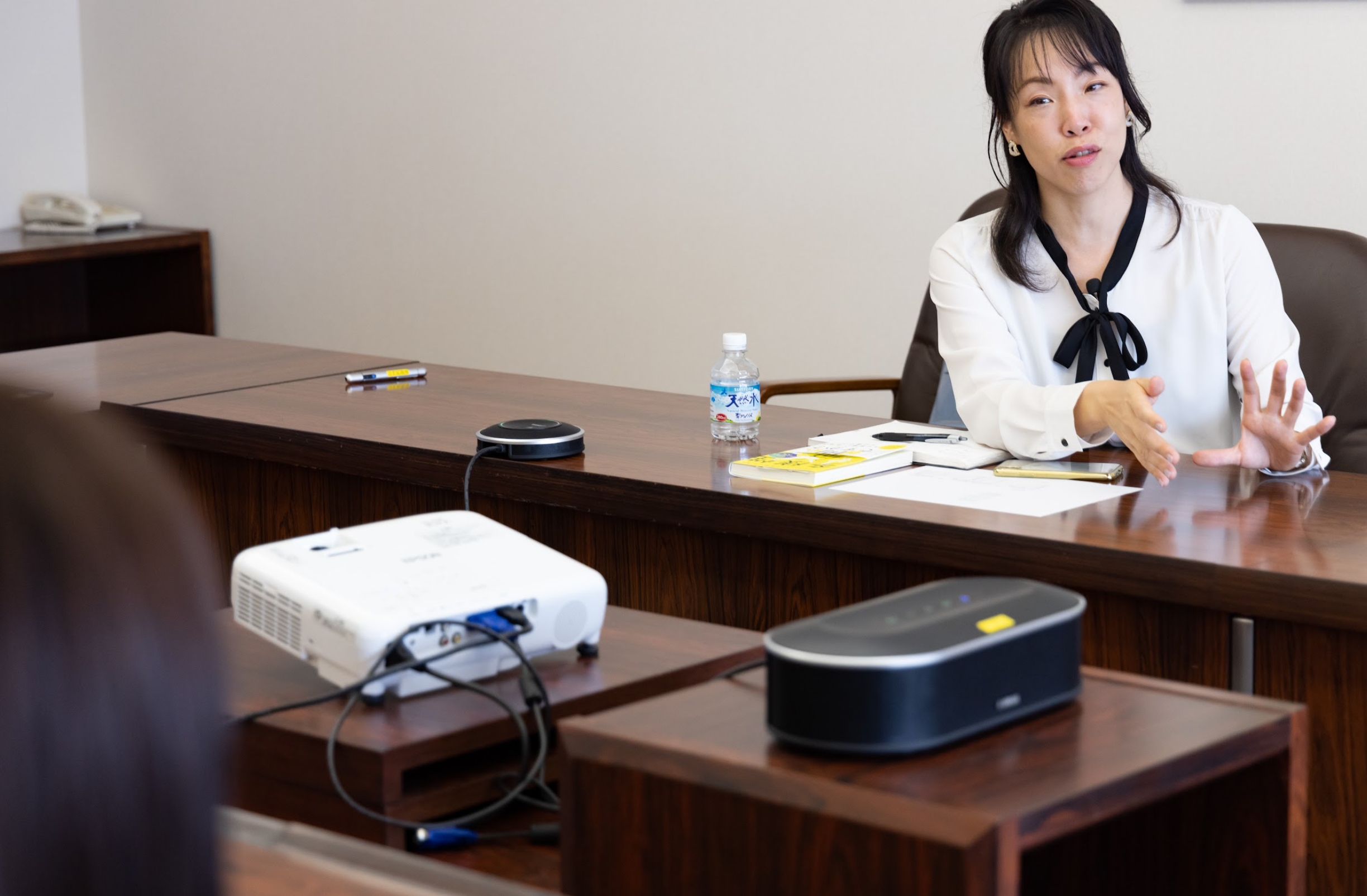
Ms. Habu: Have you ever thought about what being a leader entails? When I became the editor-in-chief of “Nikkei Dual,” my children were two years old and less than one year old, and my husband had quit his job to go to law school. I was worried about how heavy my responsibilities would be at the new position. After assessing the situation, I concluded that I couldn’t carry the same workload as my predecessors. So I decided to find staff members who were good at what I was not, and increased the number of editors to five from one. A staff member in his 30s volunteered to take on the extra work. He was also parenting at that time.
As company employees, we don’t have to be too scared about our failures. Even if we make mistakes, we can make a fresh start by transferring to another department.
Many female Japanese workers say they have never thought about career development. They have good relationships with their bosses and colleagues, and work hard every day. However, few of them offer proposals for business improvement or come forward as candidates for leadership positions.
Participant No. 3: Honestly speaking, I have never thought seriously about career development, either. I just try to think about how efficiently I can do my job every day. I want to do my best to complete my job so that people around me will appreciate it. However, sometimes I make a proposal about work procedures to improve efficiency. This is not such a huge thing, but I like making even small improvements, little by little.
Having said that, at company meetings I sometimes worry about others’ reactions if I express my opinion, so I become shy. However, your remarks have inspired me to realize that it is important to have a variety of opinions, so I will try to speak out more.

Pres. Namiki: Speaking up at a meeting can be scary at first, but once you have done it a few times, it becomes no big deal. Therefore, I purposely ask female employees for their opinions. As women look at things from a different perspective than men, we would miss a lot by not seeking women’s opinions. As I have kept asking women for their views, they have become more willing to talk, and they now voluntarily speak up even if I don’t ask.
We can say the same thing about career development. As many women seem to feel uneasy doing something different from others, I call on female employees to apply for career advancement along with other women. I want women who have never thought about career development to exercise their leadership. I want to make our company a place where women can actively demonstrate their abilities.
Ms. Habu: I was very impressed by the president’s words about focusing on women themselves to create an environment that encourages women to offer their ideas and proposals. In such an environment, women can feel safer and more secure in taking action.
If someone asks me what kind of image I have about a firm that has successfully promoted diversity, I always say it’s just like a trading card game. You would never win a game if you tried to collect only high cards. Some managers have the mistaken idea that they need to gather all the high cards, and some of them even purchase the highest cards. However, I think it’s vital to obtain a variety of cards if you want to win the game. I believe that a good leader needs to assemble a diverse team of employees to be successful.
Participant No. 4: I think I can play an active role in a team by taking advantage of what I am good at, not by taking the lead of the entire team. When I have some problems in my work and look for solutions, I try to seek advice from other departments. This sometimes gives me an unexpectedly insightful solution. And I like that we are helping each other.
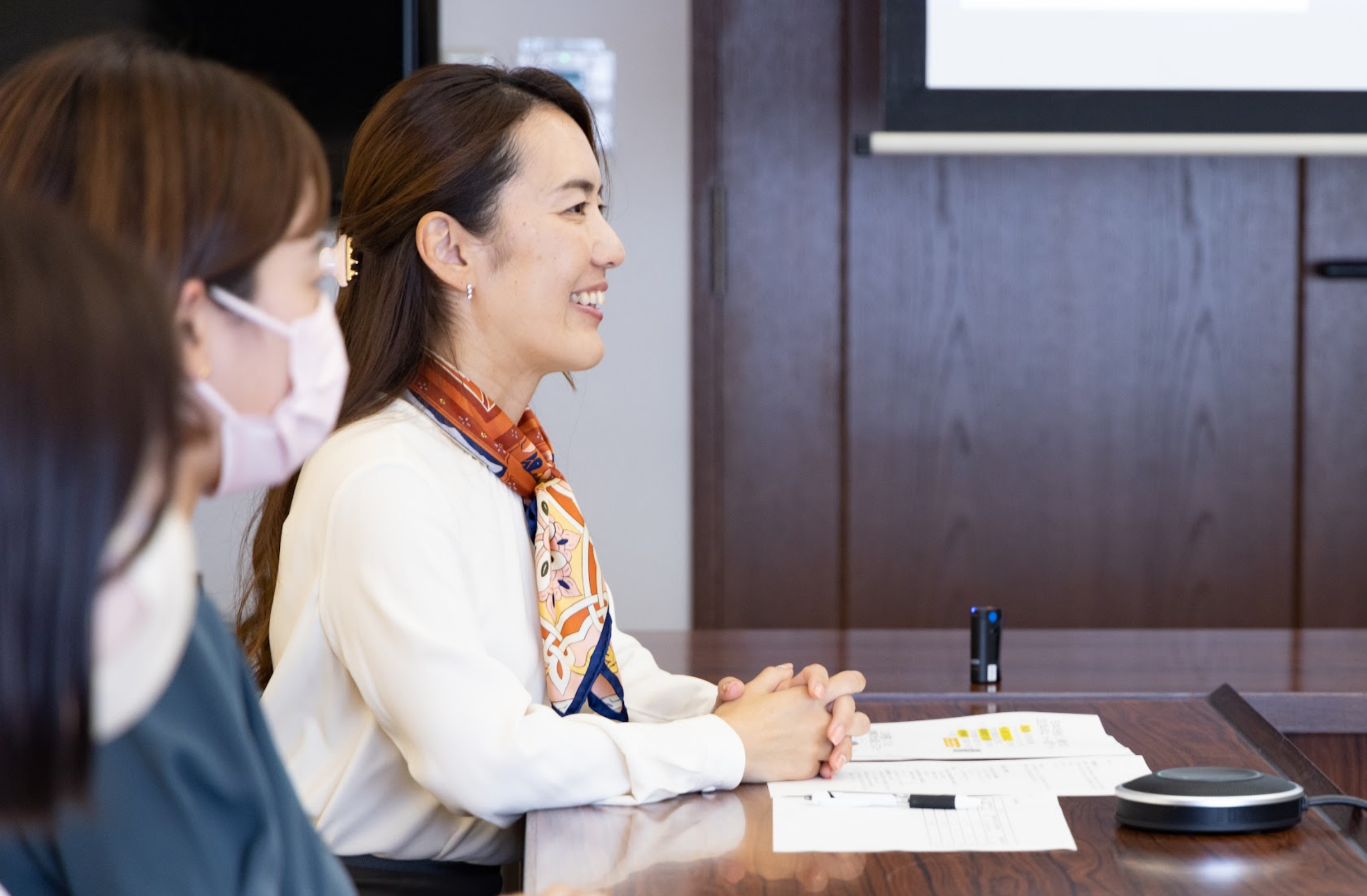
Pres. Namiki: A while ago, we held a self-development seminar at our factory in Akita Prefecture, with 100 female workers in attendance. We invited speakers who have been active in Japan and abroad. When I proposed this event, I was told that it would be an unprecedented seminar for a manufacturing company. After the event, the speakers told me that the attendees showed remarkable changes. The employees at the Akita factory are reputed to be very diligent, so I expected them to take the seminar’s advice to heart. I am pleased that the event turned out to be so worthwhile.
Data suggests that the promotion of diversity will improve a company’s performance. I would like to start by drawing forth the abilities of our female employees. Thank you so much, everyone!

Other Columns
Vol.6
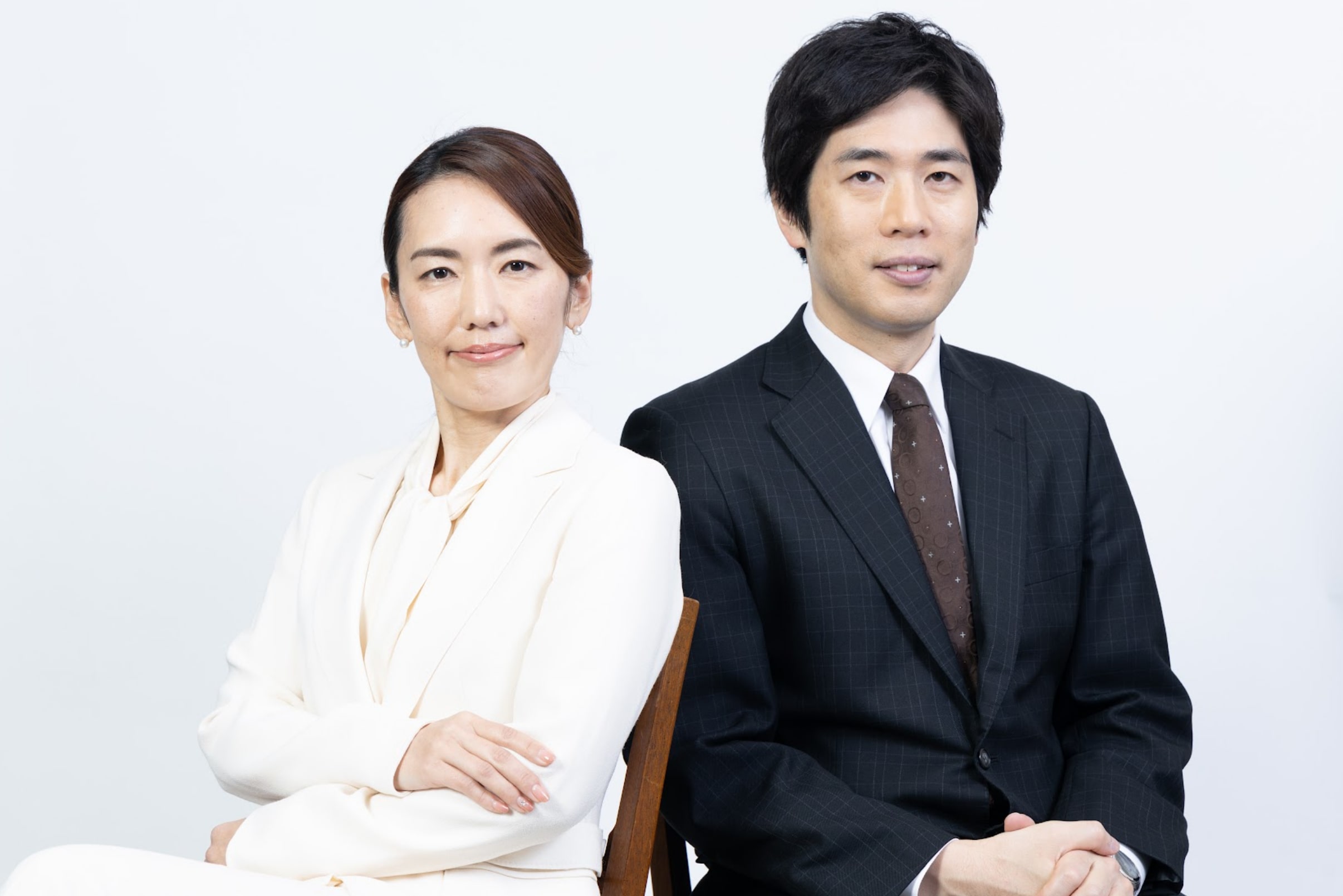
President and CEO Riyako Namiki talks with Executive Vice President Osamu Wada
Business succession for a long-established company
– the path we have chosen
Vol.8
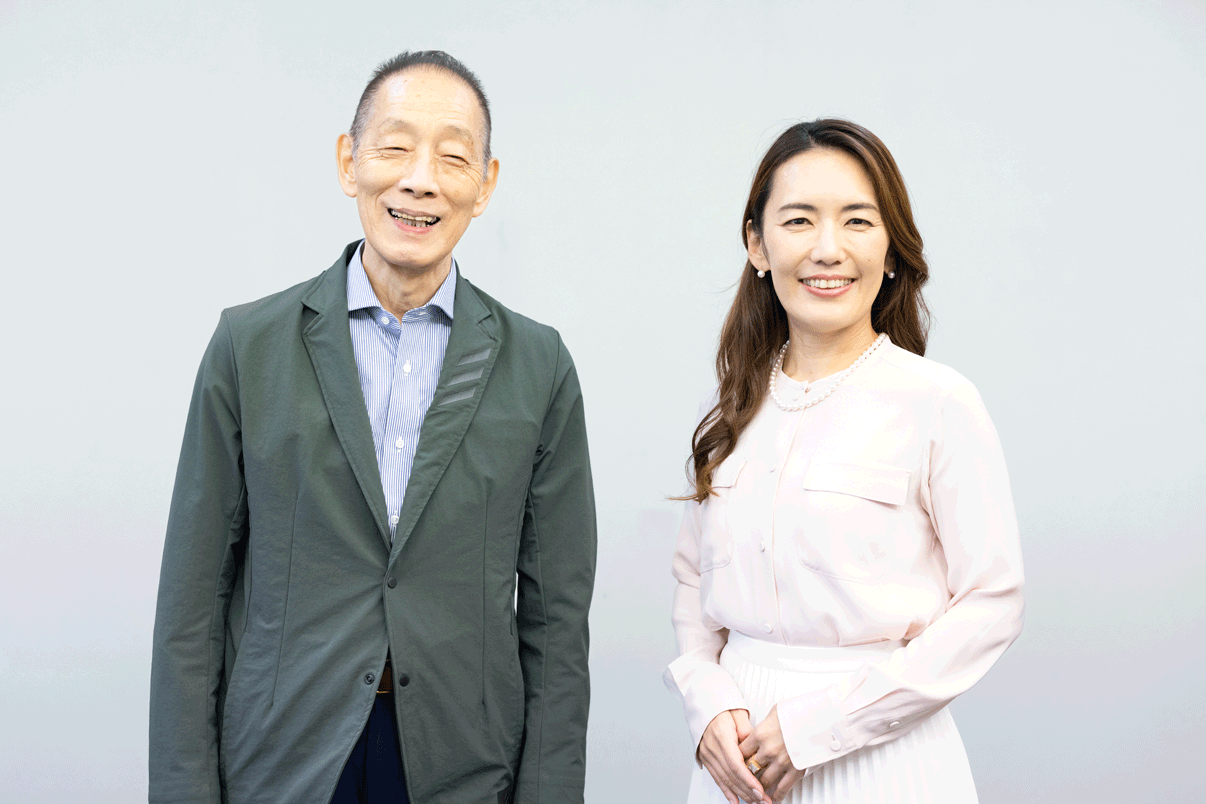
Ms. Sachiko Habu Holds a Discussion with President Riyako Namiki and Orbray’s Female Employees


